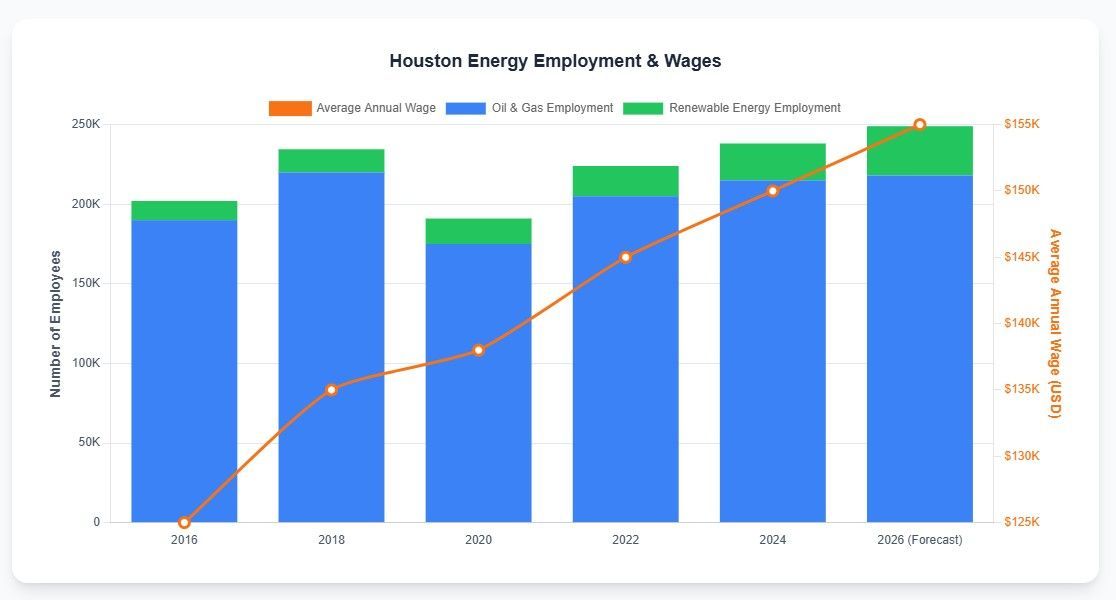
As a company founder, CEO, or president, you are almost certainly the foremost expert in your field. You know the technology, the process, and the client's problems better than anyone. But through many years of personal experience and hundreds of client consultations, we've seen a recurring pattern: this deep expertise does not automatically make you a great salesperson.

As a B2B business owner, you know that investing in marketing is essential for growth. The challenge isn’t deciding if you need marketing, but choosing the right company to deliver it. The landscape is crowded, and it’s easy to feel overwhelmed. But the most critical decision you'll make isn't about specific services; it's about the fundamental role you expect your agency to play.

This chart summarizes the key economic indicators for the Houston metropolitan area's energy sector from 2016 to 2024, with an Employment and Wages forecast for 2026. The data illustrates a decade of significant volatility and structural change, marked by cyclical oil and gas prices, major global events, and the accelerating rise of renewable energy and energy transition technologies.

As a B2B business owner, you wear many hats—CEO, head of sales, product developer, and often, the entire marketing department. One of the most significant decisions you'll face is how to handle your digital marketing. Do you roll up your sleeves and manage it yourself (DIY), or do you partner with a professional agency? There’s no single right answer, but understanding the real pros and cons of each path is crucial to making the best decision for your company's growth.

You’re doing all the "right" things. You’re posting on LinkedIn. You’re sending out emails. You might even be running a few digital ads. There’s plenty of activity, but when you look at your bottom line, the needle isn’t moving. You’re generating more activity, maybe even a few more leads, but not more revenue. It’s one of the most frustrating positions for a B2B business owner to be in—investing precious time and resources into marketing that feels like shouting into the void.

For those of us running a business in Houston, riding the economic wave is a familiar feeling. Our city’s powerful economy, heavily influenced by the energy sector, brings incredible opportunity but also a persistent, cyclical uncertainty. Many B2B leaders treat their marketing like a faucet—turning it completely off during a downturn to save cash, only to crank it on full blast during a boom, hoping to catch a flood of new business.

Beyond the Shop Floor: A Machine Shop's Guide to Winning Oil & Gas Contracts with the FADA Framework
In the demanding world of oil and gas, a machine shop's reputation is forged in precision, reliability, and the ability to meet tight deadlines. For decades, a handshake and a track record of quality work were enough. But in today's digital landscape, where procurement managers and engineers vet suppliers online before making a single call, that's no longer enough. You're not just competing with the shop down the road; you're competing for attention in a crowded digital space.

A fully loaded container ship sits idle in the Houston Ship Channel. Every hour of downtime costs its operator tens of thousands of dollars in lost revenue, port fees, and logistical chaos. The fleet manager is in a race against time, desperately searching for a reliable contractor who can execute a complex repair—fast. In this high-stakes environment, how does your maritime service and repair company become the one they call?



